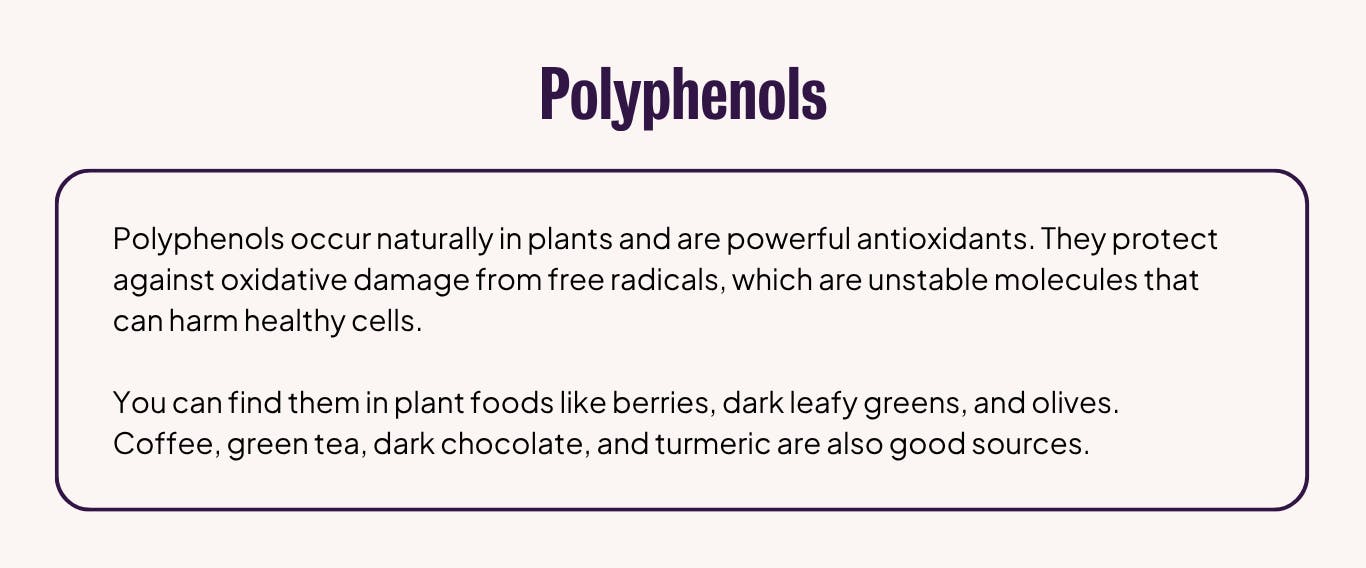How the ‘green’ Mediterranean diet supports brain health
What's covered?



The Mediterranean diet is a familiar face in the longevity world. With healthy fats, fibre, and antioxidants as hallmarks of the eating pattern, a robust body of research backs claims that it can reduce the risk of type 2 diabetes and cardiovascular disease while having a protective effect against cognitive decline and dementia.
A new 2025 study published in Clinical Nutrition suggests a slight tweak to the diet. Researchers found that participants following a ‘green’ Mediterranean diet had significant reductions in galectin-9, a biomarker associated with accelerated brain ageing.
Notably, this study didn’t involve any supplements or medication: just nutritious whole foods. In this article, we break down what the researchers found and what it means for you.
What’s special about the green Mediterranean diet?
Researchers wanted to compare the impact of different diets on brain ageing. They followed around 300 participants after assigning them to either a standard healthy diet, Mediterranean diet, or the green Mediterranean diet. All diets had some form of calorie restriction.
While the usual Mediterranean diet emphasises fruit and veg, whole grains, legumes, seafood, and olive oil while limiting red meat and processed food, the ‘green’ version goes a step further.
In addition to cutting out red and processed meats, participants assigned to the green Mediterranean diet consumed the following on a daily basis:
- 3-4 cups of green tea
- 28 grams of walnuts
- 100 grams of Mankai, a type of duckweed
After 18 months, the Green-Mediterranean group showed statistically significant reductions in galectin-9, a protein in the blood associated with ageing. They also had lower levels compared to the ‘healthy diet’ group.
Higher levels of galectin-9 suggest ongoing inflammation, which can gradually damage neurons in the brain.
The mechanism appears to involve polyphenols, which are plant compounds with anti-inflammatory properties. Green tea, walnuts, and Mankai are all particularly good sources, alongside berries, coffee, and extra virgin olive oil.

To assess the brain health of participants in each group, researchers used MRI scans to calculate ‘brain age’—essentially, how old their brain appeared structurally compared to healthy reference populations. They called the difference in their brain’s calculated age and their actual age the ‘brain age gap.’
Participants whose galectin-9 decreased during the intervention demonstrated lessened brain ageing in scans. They had smaller increases in the brain age gap over 18 months compared to those whose galectin-9 remained elevated or increased.
Why galectin-9 matters for brain health
These findings are exciting, but galectin-9’s importance isn’t new. Previous research has established it as a biomarker of disease severity.
For example, a large 2021 meta-analysis looking at people with liver disease showed elevated galectin-9 in people with more severe conditions. Similarly, a 2017 study on people with cardiovascular disease has demonstrated higher levels in stroke patients than in people who haven’t had strokes.
But while previous studies have established galectin-9 as a biomarker of disease and inflammation, they haven’t identified ways to reduce it. That means the new paper’s finding that dietary modifications are associated with lower levels is important—especially as this reduction correlates with slower brain ageing.
There’s still a lot we don’t know about brain ageing
But while these findings are exciting, they have fairly limited scope. About 90% of the green Mediterranean diet study’s participants were male, which reduces their applicability to females.
Most participants were office workers with some form of metabolic dysfunction, so it’s unclear if the same benefits of dietary change apply in people who are metabolically healthy.
It’s also important to recognise that galectin-9 is just one piece of the brain-ageing puzzle. The study primarily focused on cardiovascular-related proteins, meaning other potentially relevant biomarkers weren’t examined.
As experts uncover more about brain ageing and neurodegenerative disease, research looking at modifiable factors (such as diet) sheds light on changes that can benefit your future health. While more research is needed, lifestyle factors like sleep, stress, and exercise likely play a role in brain ageing.
How to reap the benefits of the green Mediterranean diet
The green Mediterranean diet isn’t a magic bullet for brain health, but the anti-inflammatory effects of polyphenols can’t be overlooked. For most people, increasing plant foods is safe and beneficial.
You can implement this study’s findings by:
- Having one or more cups of green tea per day
- Using walnuts as a salad topper or as a quick snack
- Adding more dark leafy greens to your diet in salads, stir-frys, or soups
Note: Green tea contains caffeine. Those sensitive to caffeine, pregnant, or taking certain medications should check with their doctor first.
Takeaway
While this study's findings linking the green Mediterranean diet to reduced markers of brain ageing are promising, diet is likely just one of many factors impacting your brain health.
Regardless, polyphenol-rich foods have varied and proven health benefits—and this research shows that they may be good for your brain, too.
Disclaimer: This information is for general educational purposes only and isn’t a substitute for professional medical advice, diagnosis, or treatment. Always speak with a qualified healthcare professional if you have questions about your health or before making changes to your care, diet, or routine. If you’re having a medical emergency, please seek help by contacting your local emergency services.
- An, Y., et al. (2021). Role of galectins in the liver diseases: A systematic review and meta-analysis. https://www.frontiersin.org/journals/medicine/articles/10.3389/fmed.2021.744518/full
- Claudine, M. et al. (2004). Polyphenols: food sources and bioavailability. https://www.sciencedirect.com/science/article/pii/S0002916522039144#s0045
- Fekete, M. et al. (2025). The role of the Mediterranean diet in reducing the risk of cognitive impairment, dementia, and Alzheimer’s disease: a meta-analysis. https://link.springer.com/article/10.1007/s11357-024-01488-3
- He, X., et al. (2017). Serum levels of galectin-1, galectin-3, and galectin-9 are associated with large artery atherosclerotic stroke. https://www.nature.com/articles/srep40994
- Moar, P. & Tandon, R. (2021). Galectin-9 as a biomarker of disease severity. https://www.sciencedirect.com/science/article/abs/pii/S000887492100006X
- Pachter, D., et al. (2024). Gal-9 and DCN serum expression reflect accelerated brain aging and are attenuated by the green-Mediterranean diet: The 18-month DIRECT PLUS proteomics-brain MRI trial. https://www.sciencedirect.com/science/article/pii/S0261561425002353
- Sebastian, S. et al. (2024). Long-term impact of mediterranean diet on cardiovascular disease prevention: A systematic review and meta-analysis of randomized controlled trials. https://pubmed.ncbi.nlm.nih.gov/38431146/
- Ying, Z. et al. (2024). Mediterranean diet lowers risk of new-onset diabetes: a nationwide cohort study in China. https://pmc.ncbi.nlm.nih.gov/articles/PMC11515611/